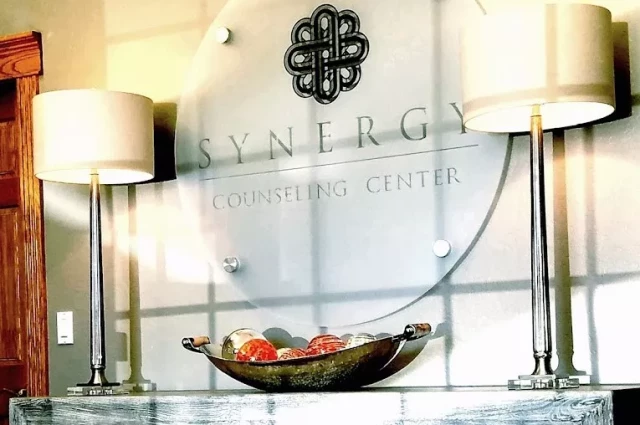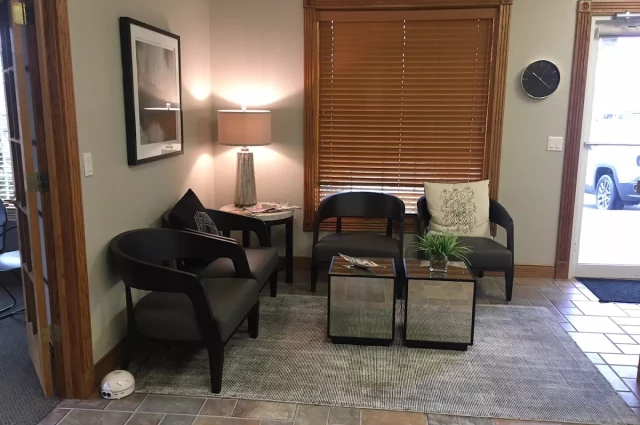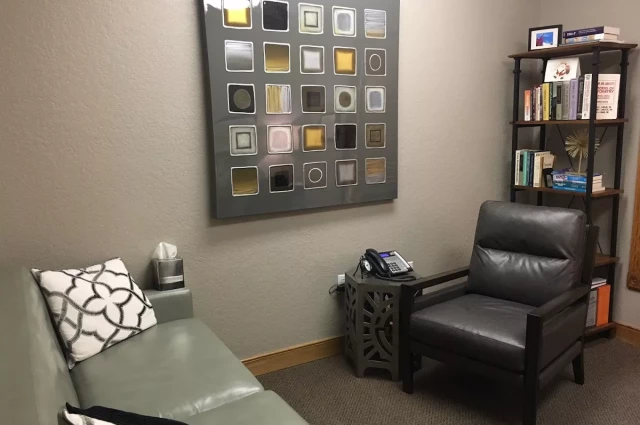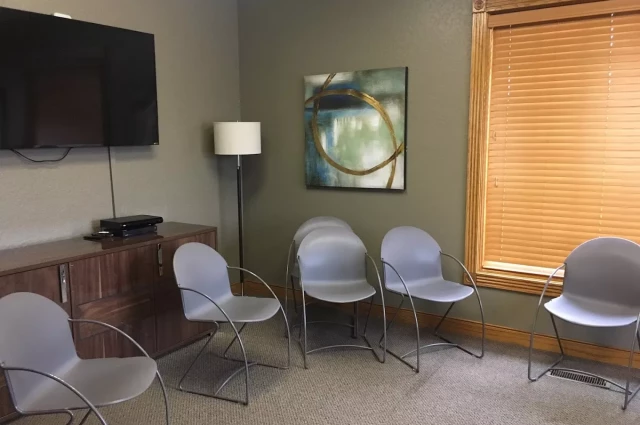Synergy Counseling Center Information
Treatment
Who We Treat
- Adolescents
- Children
- Male and Female
- Couples
Treatment Focus
- Private Therapy
Approaches
- Group Therapy
- Family Therapy
- Evidence-Based
- 1-on-1 Counseling
- Cognitive Behavioral Therapy (CBT)
- Dialectical Behavior Therapy (DBT)
- Individual Treatment
- Online Therapy
Conditions We Treat
- Anxiety
- Depression
- Grief and Loss
- Obsessive Compulsive Disorder (OCD)
- Bipolar
- Trauma
- Anger
Substances We Treat
- Alcohol
Level of Care
- Intensive Outpatient Program (IOP)
- Outpatient
- Virtual & In-Home Care
Experience
Smoking and Vaping Policy
- Smoking Allowed in Designated Areas
- Vaping Allowed in Designated Areas
Accreditations
-
The Joint Commission
The Joint Commission, previously known as JCAHO, is a nonprofit organization that accredits rehabilitation organizations and programs. Established in 1951, its mission is to enhance the quality of patient care and showcase excellence in healthcare delivery.

Synergy Counseling Center Accepts The Following Insurance Plans
Find the best treatment options. Call our free and confidential helpline today!




